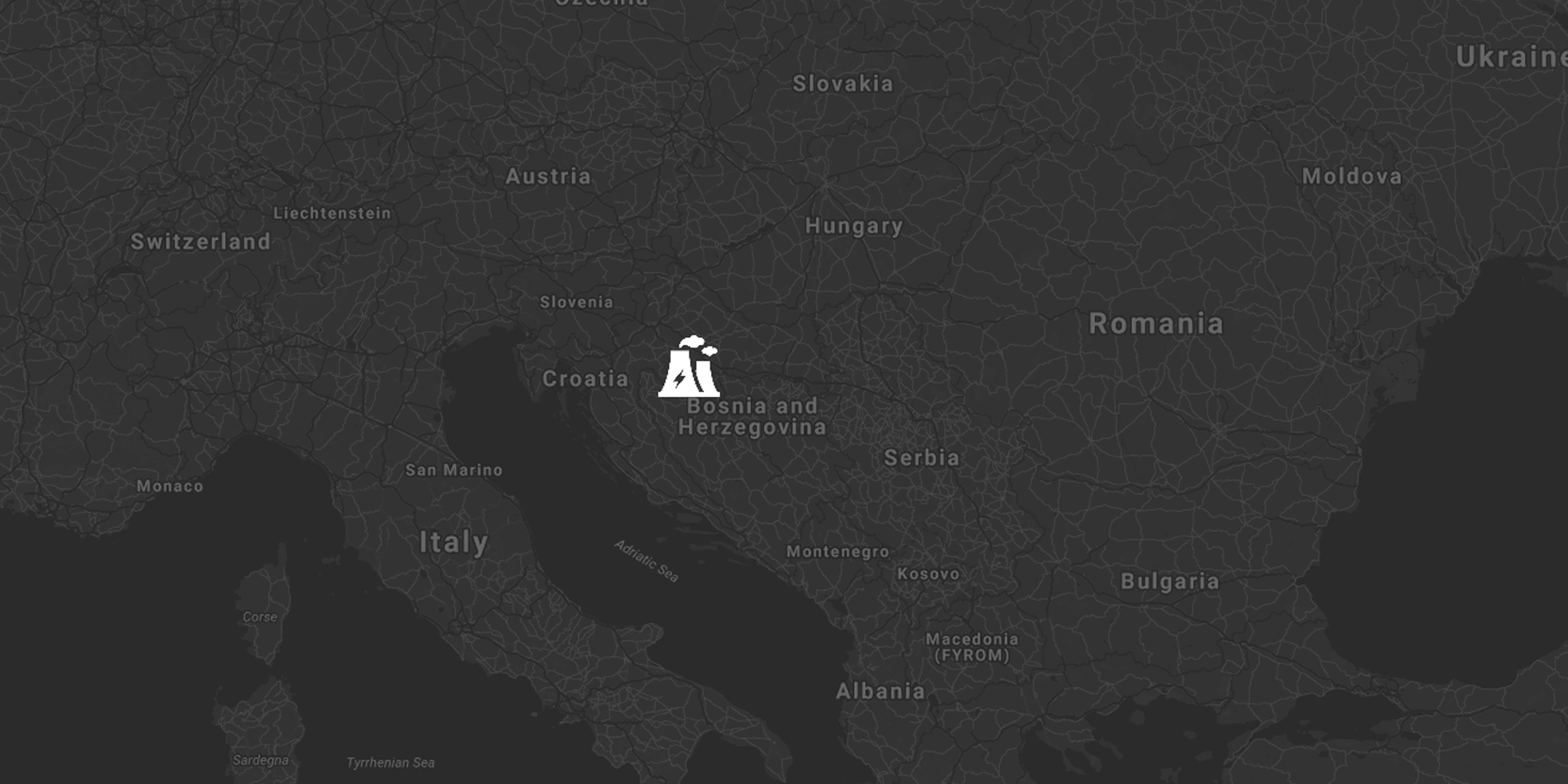Kamengrad lignite power plant, Bosnia-Herzegovina
An idea to build a power plant at the open-cast Kamengrad coal mine near Sanski Most in the Federation of Bosnia and Herzegovina has been around for years, but in November 2017 it took a step forward with the signing of a Memorandum of Understanding between Energy China International and the construction supplier Lager d.o.o. for a 2 x 215 MW plant.

Stay informed
We closely follow international public finance and bring critical updates from the ground.
Background
CANCELLED: An idea to build a power plant at the open-cast Kamengrad coal mine near Sanski Most in the Federation of Bosnia and Herzegovina has been around for years, but in November 2017 it took a step forward with the signing of a Memorandum of Understanding between Energy China International and the construction supplier Lager d.o.o. for a 2 x 215 MW plant.
Few details are available about the plant, and it has no environmental permit and no financing. As with other plants across the region, unrealistic employment promises have already been made. In December 2017 head of the Sanski Most District Faris Hasanbegović stated that it would provide 1000 workplaces.
This does not appear to have convinced local people, however. As it would be a new power plant, it has attracted much more opposition locally than most other planned plants in the country. Sanski Most is located on the beautiful river Sana and prides itself on having no fewer than nine rivers in the district altogether. As a scenic and green area many of its residents feel that the power plant will spoil its potential for agriculture and tourism rather than bringing prosperity.
At a public debate on the adoption of the Una-Sana Canton spatial plan in August 2018, Sanski Most residents and the local council demanded the removal of the power plant project from the plan. This was carried out, although the plan was never adopted. In November 2019, another presentation of the Kamengrad coal power plant project appeared on the agenda of the Sanski Most Municipal Council. However, the meeting was cancelled after public pressure.
Another issue is that the concession for the mine was awarded to Lager d.o.o. after a bankruptcy procedure was carried out for the previous operator, RMU Kamengrad, but in 2017 the bankruptcy decision was declared illegal by the Constitutional Court of Bosnia and Herzegovina and returned to the Una-Sana Canton court.
As of early 2026 the plant is very unlikely to go ahead and does not appear in Bosnia and Herzegovina’s ten-year network development plans, so we consider it cancelled.
Latest news
That’s what they call sustainable. The EBRD’s 10 billion for sustainable energy
Blog entry | 6 November, 2012The European Bank for Reconstruction and Development boasts of having invested 10 billion euros in sustainable energy since 2006. A closer look reveals that although the bank’s efforts deserve recognition, several investments make a mockery of ‘sustainability’.
Read moreCrunch time at Sostanj
Blog entry | 5 November, 2012November is shaping up to be crunch time for a new 600 MW lignite plant planned to be built at Sostanj in Slovenia. If the Slovenian government doesn’t manage to offer a state guarantee for loans from European public banks that should cover half the construction costs by the end of this month, the project could fail. At Bankwatch, we’re preparing our popcorn for the latest Sostanj thriller, on show across Europe this month.
Read more‘Comments noted’, business as usual continues. The marginal public influence on the EBRD’s new mining policy
Blog entry | 2 November, 2012After long delays and more than 3 years of preparation the European Bank for Reconstruction and Development has finally completed and published a policy for its operations in the mining sector. Both the consultation process and the final outcome must leave “the consulted stakeholders” disappointed.
Read moreRelated publications
Priority measures for energy efficiency in buildings: Discussion paper on energy poverty, energy sufficiency and deep renovation in the Western Balkans
Discussion paper | 27 January, 2026 | Download PDFIn the Western Balkans, buildings use more than 40% of energy, and they are poorly insulated, inefficient and reliant on outdated heating systems, leading to energy waste.
Implementation of the Climate Investment Funds Accelerating Coal Transition Investment Plan for North Macedonia, with recommendations for 2026
Briefing | 19 December, 2025 | Download PDFThis briefing takes a closer look at the Annual just transition implementation plan 2025 and gives several recommendations for the 2026 update.
Beyond the scoreboard: Energy sector transformation under the Reform and Growth Facility for the Western Balkans
Report | 5 December, 2025 | Download PDFThis analysis offers an overview of the energy-related reforms from Albania, Kosovo, Montenegro, North Macedonia and Serbia and then evaluates the countries’ progress.
